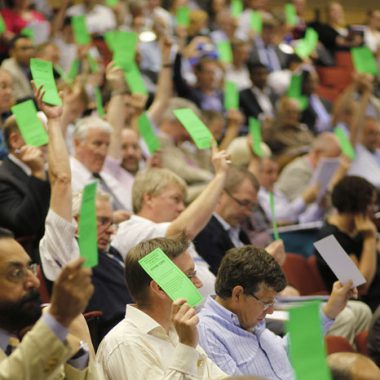GPs from around the country are gathering on Thursday and Friday for the annual LMCs conference in London to discuss the urgent crisis facing GP practices.
GPs’ ever increasing workloads – not helped by the denigration of the profession by media and politicians – is bringing about a recruitment and retention time bomb. We now have a dangerous situation where there are hundreds of vacancies for GP trainees. Meanwhile, one in three GPs say they are considering retiring early and practices report they are struggling to meet demand for appointments.
An injection of realism is necessary to stop the destruction of general practice
The ongoing, demoralising influence of the regulator, the Care Quality Commission (CQC), only makes matters worse. This supposed guardian of patient safety has lurched from disaster to disaster over recent years – most notably having to withdraw a failed and laughable part of its inspection programme that judged GP practices before its inspectors had even arrived. It continues to require endless box ticking and paperwork from GPs – including records of the number of internal meetings held – which diverts valuable time away from treating patients. Adding insult to injury, the CQC plans to introduce an exorbitant increase in fees that will cost GPs £40m a year, threatening the future of small GP practices and potentially undermining patient care. I am not defending bad practice, but the CQC has never taken into account the circumstances in which practices operate. Variations in funding, the deprivation factor, poor premises, nurses shunning general practice, all of these factors are ignored.
The environment in which GPs are striving to provide services is increasingly challenging. GPs across the country tell us that they are firefighting to provide the services their patients want and the care they need. Without addressing these fundamental problems, we are in danger of undermining general practice to a point where medical students and junior doctors will not take it up and it could be in danger of terminal decline. The highhandedness of CQC is one factor, GPs are leaving the profession. If NHS England is serious in supporting general practice, it needs to abolish the CQC.
Rising indemnity costs are also having a serious impact on GPs as well as stifling innovation. The indemnity fees that GPs have to pay to practices have been rising for decades. When I started my career, the defence fee was £30. In recent years, however, the increasing costs of securing some types of cover have been threatening the viability of some of the services GPs provide. Neither recruitment of young doctors into general practice nor retention of senior colleagues will improve until all GPs working for the NHS are indemnified by the Crown.
At the conference, we’ll look at how the profession can begin to emerge from this gloom. Motions will explore the possibility of longer consultation times with patients, to cater for those individuals who have multiple health concerns that cannot be crammed into such a short session. And other proposals will include calls to explore how practices can work closer together in federations and networks to share resources. Many of the motions will also look at how we can achieve the personalised care patients want – something that is especially relevant given the formation of extended primary care teams, where GP practices include different healthcare professionals under one roof.
The funding crisis and increased demand for care means general practice as patients know it in England is under severe threat of extinction. We can no longer guarantee a future for general practice as our patients know it, rely on it, and love it. An injection of realism is necessary to stop the destruction of general practice. Forcing reform after reform, or chasing spurious projects, can only aggravate the low morale of its workforce. Politicians need resisting, promise after promise rolled out from the podiums, each more lavish than the last and ever more detached from reality. Politicians of all parties, need a reality check, to take a breath and stop playing games with our health services. I sincerely hope and wish NHS England take seriously the concerns expressed in this LMCs conference. The survival of general practice is the survival of the NHS.
Dr Kailash Chand OBE is the deputy chair of the BMA, and a retired GP
Follow all our LMC Conference coverage here
Pulse October survey
Take our July 2025 survey to potentially win £1.000 worth of tokens














